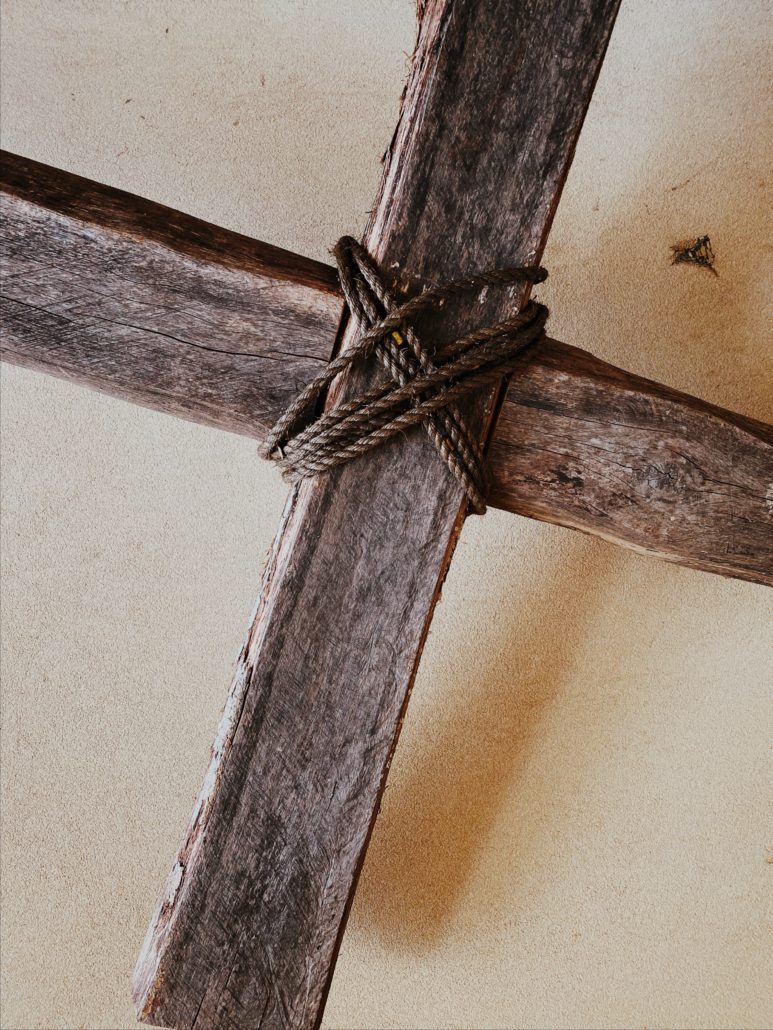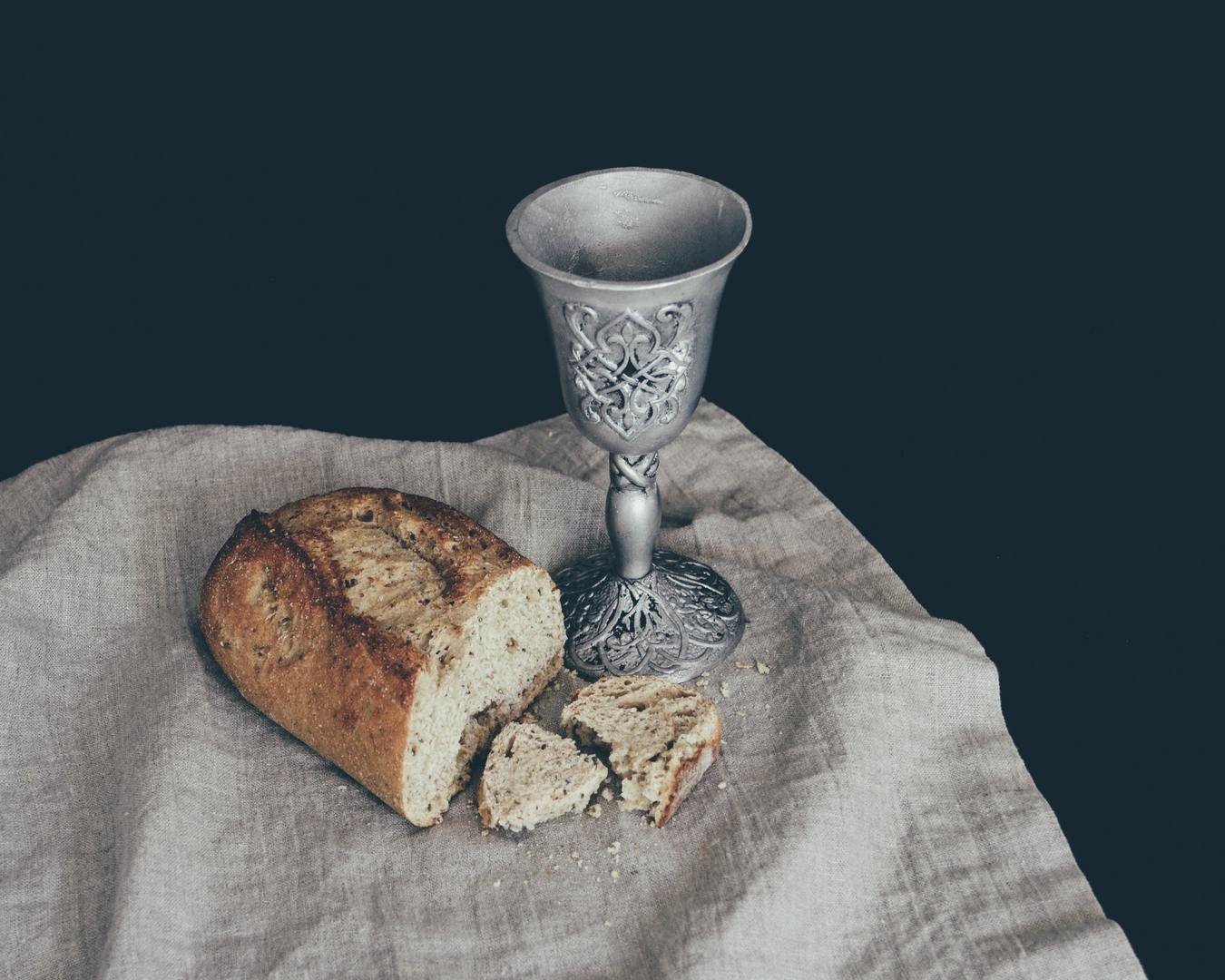I start with these words of the risen Jesus to his disciples because I wish you peace, but also because I need to remember the peace of God in my own heart in this frightening time.
I don’t feel peaceful these days. An uncomfortable trepidation about a strange and difficult future hovers in my consciousness even as I try to keep hope alive. And my vague fears seem so insignificant in the face of so much suffering as this global pandemic strangles a world that was already gasping for relief.
It doesn’t feel like any Easter I have ever known. The triumphal joy is muted. It is a heavy, fearful time.
The very first Easter was also a heavy, fearful time.
Like many of us, the disciples were shut up inside, not daring to emerge until the streets were deserted. They worried about being caught by the authorities, just as we worry about ourselves or our loved ones being “caught” by the virus.
But when Jesus first appeared in that locked room, the disciples – for a brief moment before he speaks – have something else to worry about.
Imagine standing face-to-face with a murdered man back from the dead, a man you had abandoned at the hour of death. You had believed this man to be the Messiah, but had probably given up that hope when he was brutally killed by religious and political authorities.
And now he’s alive again.
Every ancient story of a dying and rising god up until now has ended the same way: in bloody revenge! So, before Jesus offers peace, there was probably an instant of terror in which the disciples had to grapple with the same question that we at Raven have been exploring for months: “Is God violent?”
Another way to ask that question is, “Is the ultimate power that orders and moves the universe… violence?” But the disciples may have wondered in a more visceral way, “Is a violent God after us?”
The answer to all these questions was, is, and always will be, “No!”
But the disciples, like all of us, are forgiven for being confused, for needing a lifetime to discern what God’s absolute nonviolence means in a world so saturated with violence.
Coming to Terms With God’s Nonviolence
Human violence killed Jesus. Humans shouted for his crucifixion, cracked the whip, drove the nails. Those who killed him had thought they were acting in the name of God – the priests who condemned Jesus of blasphemy and the Romans who believed in the divinity of Caesar, but they were wrong.
When the Jewish and Roman authorities together killed Jesus, though they belonged to different faiths, they represented the whole world’s ultimate worship of violence.
All religions are mixtures of God’s revelation and humanity’s limited, faulty understanding. Throughout history, human faith in love and mercy has been entangled with faith in the righteousness of violence, of defeating enemies, of bending others to one’s will.
And the disciples had begun to see, but not fully comprehend, how Jesus was disentangling human violence from the mercy of God. They saw him apply the law to heal rather than condemn. They saw him restore the sick, feed the hungry, welcome the marginalized, and reinterpret sin not as a fault of those excluded, but as exclusion itself. They saw him begin to turn the world upside-down not with a drawn sword but a healing embrace.
And then they saw him arrested, humiliated, crucified.
And they ran away.
They had never quite stopped believing in violence. Even as Jesus was showing them a new way to change the world, the old world order of violence captivated them. They were ready to fight for Jesus, for themselves, for liberation. But they weren’t ready to lose.
Now the Lord they had abandoned is suddenly standing there in that locked room. Had they fled one authority only to be caught by the one they should have feared more? Was the whole world about to come crashing down on their heads?
But Jesus blesses them. He bestows on them the only peace that can heal them from the inside out. He shows them all he has suffered, shows the marks of death on his body. And he forgives them for leaving him. In doing so, he demonstrates once and for all that God’s role in violence is not to command it, but to suffer it with the suffering and to forgive it. Jesus has no anger, only love, to give.
Even as we distance ourselves, we are realizing our profound interconnection. This is Jesus – this is Love – at work.
Called Into Vulnerability

But now that they know that Jesus isn’t “after” them, the disciples must follow after Jesus. They must continue to learn what it means that God desires mercy, not sacrifice, in a world that has sacrificed God on the altar of power and violence and fear.
Those who had thought they might change the world through killing their enemies are being called to change the world through loving their enemies instead. And that will leave them as vulnerable as Jesus. Yes, he overcame death, but only by going through it.
And the disciples are going to have to learn, step by stumbling step, how to submit and commit themselves to that vulnerability. How to focus their hearts and minds and energy on building relationship with those who are suffering and thus open themselves up to suffering – but also to joy that comes from compassion. How to live into their forgiveness by forgiving others, by recognizing that the infinite human capacity for good is so much greater than all our mistakes and shortcomings, because we are living images of Love.
And they know that opening themselves this way can lead to as much pain and humiliation as they have seen Jesus suffer. But they can’t run away this time, because love is calling them forward.
“They,” of course, are all of us. All of our eyes are being opened to a world of violence caving in on itself. And it’s going to take extraordinary love to pull us through this mess, and none of us are going to come out unscathed. But in ways we cannot yet know, we are going to have to open ourselves to trust and vulnerability and compassion.
The Olive
Branch
Take A Breath with Us
Our weekly newsletter creates a space to take a breath. Once we slow down, we can see the way desire, imitation, and conflict operate in our lives and in the world, and begin to create peace. In addition to the newsletter, you will receive the free "Unlearn the Bible" ebook when you subscribe.
Our Violence Exposed
It really feels in so many ways like the very first Easter.
The Coronavirus, like nothing else I’ve ever seen, is exposing the crumbling foundation of violence upon which this teetering world is about to collapse.
This disease is not the punishment of a violent God. God does not bestow sickness, but rather comforts and heal us.
But this disease does betray human faith in violence. The sheer devastation it reaps like wildfire is fueled by the kindling of inequity.
We are all vulnerable. But the most vulnerable among us are those who were already sick and without access to care, those without clean air or water or nutritious food. The most vulnerable are the homeless, the refugees, the prisoners. Those displaced from war and those in the midst of war also are not spared.
And there are vulnerable people on the front lines of this crisis, risking their health out of necessity to provide food and medical care, to clean and sanitize. Many who work for less than a living wage and can least afford treatment are keeping the world turning.
All of this inequity is violence. Jesus would draw the connection between this suffering and the idolatry of violence and greed, the worship of Moloch and Mammon.
And finding us entangled in the consequence of human violence, Jesus reminds us that every aching body, worn down from work and stress and illness and despair, is a member of his own body. Whatever we do to the most vulnerable we do to him.
And in response, Jesus embraces us with unconditional love, empowering us to love one another.
Letting Love In; Letting Love Lead
Isolated in our homes, Jesus is breaking through the walls of our hearts. We are discovering our dependency upon the most vulnerable. We are recognizing that our wellbeing depends on the wellbeing of one another. Even as we distance ourselves, we are realizing our profound interconnection. This is Jesus – this is Love – at work.
Like those first frightened disciples, we are being called beyond our fear. The peace Jesus wishes us is a call to repentance, to change our minds and be healed from the pandemic of violence that distorts our vision.

To repent is to recognize and live into our unconditional Love, which emboldens us to trust rather than fear each other. On a firm foundation of Love, we can become the world we need to be to care for each other through this unimaginable suffering.
To build that foundation of love, we will need to practice patience and kindness and mercy towards those in our care, those who with whom we share actual or virtual space. Suzanne Ross has given practical suggestions for how we may bridge our social distance gaps with love, or use love to cushion ourselves when we get so close in our shared space that we chafe each other.
But we will also need to find ways to actively love those whom we don’t know, but upon whom we depend. We will need to find new and creative ways to uplift all whose lives and wellbeing are at risk, even if we must do so in cyberspace. To follow Jesus is to find him among the suffering. It is to recognize that when one suffers, we all suffer together, and when one is healed, we are all healed together.
Easter is when we see that the path to eternal life is open to us, but it crosses through suffering and death. It is a frightening time because it opens our eyes to the depths of our violence, which not even God – especially not God – could escape. But it also opens our hearts to the same love that slowly dissolves our fear. That’s the love that will transform our violence and bring relief to all who have been suffering long before the Coronavirus descended on us, and ultimately to all of us.
It feels like the very first Easter, as our eyes finally, soberly, take in the horror and the beauty. The Son has risen. To follow him into abundant life, let us work to make life abundant for all on earth as it is in heaven. Amen.

